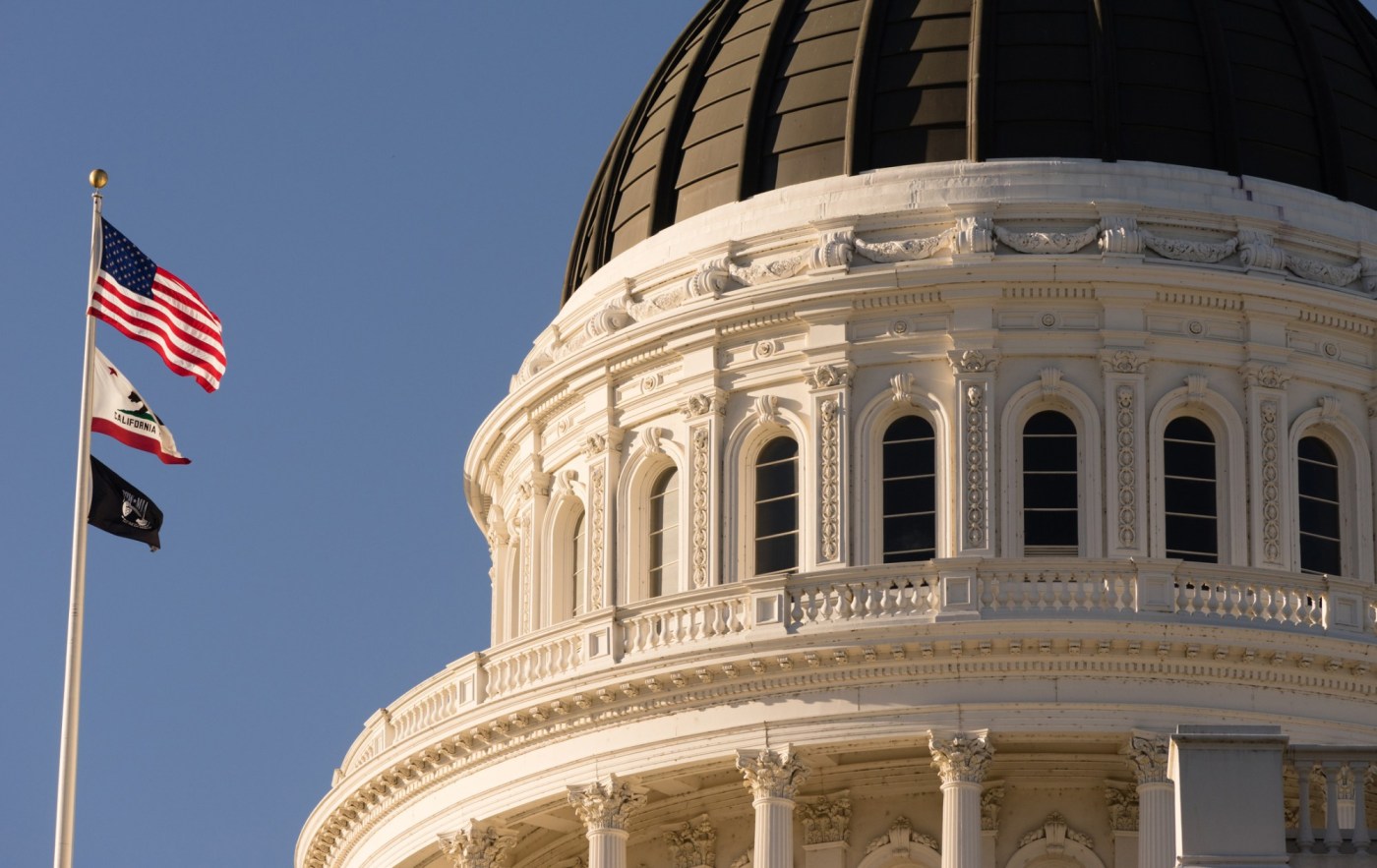
On Tuesday, Gov. Gavin Newsom appeared at the state Capitol for a closed-door meeting with top Democrats in the state Legislature to hammer out a deal on key energy and climate policies that hung in the balance. The stakes were high: Californians are shouldering heavy gas and electricity prices, oil refineries are planning to shutter and the Trump administration has targeted state climate policies.
Newsom ultimately struck a six-part deal, announced Wednesday with Assembly Speaker Robert Rivas and Senate President Mike McGuire. If approved this week, the package of bills would overhaul California’s energy market, spur more oil drilling, help reduce home electricity bills and monitor pollution in low-income communities. It also extends a key climate policy that will funnel $1 billion annually into California High Speed Rail for the next 20 years.
“Overall, this is the biggest year for California climate, ever,” said Silicon Valley state Sen. Josh Becker, the Democratic chair of the Senate energy committee.
But the plans were still far from the finish line as of Thursday afternoon. Lawmakers were behind schedule and had waived rules to allow themselves to keep meeting on Saturday; technically, Friday is the last day to pass bills.
Other major bills were still being hotly debated. Assemblymember Dawn Addis, a Democrat representing the Central Coast, had co-introduced a divisive plan earlier this year to limit content taught about Israel and Palestine deemed antisemitic in high school ethnic studies courses. Amid opposition from teachers and Muslim civil rights advocates, as well as other “diversity caucuses” in the Legislature, Addis and supporters shelved the bill in May. Then, they reintroduced an amended version that would apply more broadly to content taught in schools.
Several hundred of the new bill’s supporters and opponents crowded a Senate education committee hearing on Wednesday evening and delivered passionate testimonies. The committee ultimately passed the bill, but several more rounds of voting stood between the bill from becoming law. As of Thursday afternoon, the bill would create a state antisemitism coordinator position working with school officials to prevent anti-Jewish discrimination and general “discrimination and bias.” Instructional materials would be outlawed in all of a school’s courses if “found to have resulted in unlawful discrimination.”
“While we believe that the bill is not perfect and would have liked to have stronger protections that were originally written into the bill, we support the current bill because it recognizes that California has a serious antisemitism problem in its K-12 schools,” said Tali Klima, a spokesperson for the Bay Area Jewish Coalition.
The California Teachers Association opposes the bill, a spokesperson said. So does the local branch of the Council on American-Islamic Relations. One the organization’s chief criticisms of the bill is that it would conflate critiques of the Israeli government with discrimination against Jewish people.
“AB 715 codifies a complaint-driven speech regime that punishes good-faith educators, strips shelves, and tells students some truths are off-limits — especially when it comes to Palestine and human rights,” CAIR legislative and government affairs director Oussama Mokeddem said in a statement.
Questions also remain about the fate of Bay Area transit agencies, which are facing budget shortfalls and serious service reductions if unaddressed.
Newsom committed Wednesday to release some state funding to the struggling agencies, including BART and AC Transit, after lawmakers raised the alarm that the governor was reneging on his prior commitment to do so. But it’s unclear how much funding the agencies will receive, and when, said state Sen. Dave Cortese, the Democratic chair of the Senate transportation committee. Newsom and lawmakers agreed to hash out a deal this fall.
“It’s not ideal,” Cortese said.
Other big-ticket items bit the dust this year.
One major priority of Newsom’s that stalled this week was his plan to fast-track construction of a 45-mile long, $20 billion tunnel under the Sacramento-San Joaquin Delta to make it easier to move water from Northern California to Southern California. The project, a source of debate for more than 40 years — and which voters rejected in a 1982 state ballot measure — is key, Newsom says, for moving more water around the state during wet months.
Labor unions and many water agencies support it. But environmentalists and counties located the Delta call it a water grab. Newsom’s budget trailer bill would have made it easier for the state Department of Water Resources to acquire land, issue bonds, and avoid lawsuits filed under the California Environmental Quality Act to build the 36-foot high concrete tunnel.
But opponents, led by state Sen. Jerry McNerney, a Democrat from Stockton, fought the proposal so vociferously that Newsom punted, shelved it, and is expected to try again next year.
“Defeating the tunnel fast-tracking proposal is a major victory for California and the Delta, and for the communities, farms, and historic resources surrounding the largest estuary on the West Coast,” McNerney said in a statement. “The tunnel project not only would devastate much of the Delta region, but is also unaffordable and unnecessary.”
Staff Writer Paul Rogers contributed to this report.